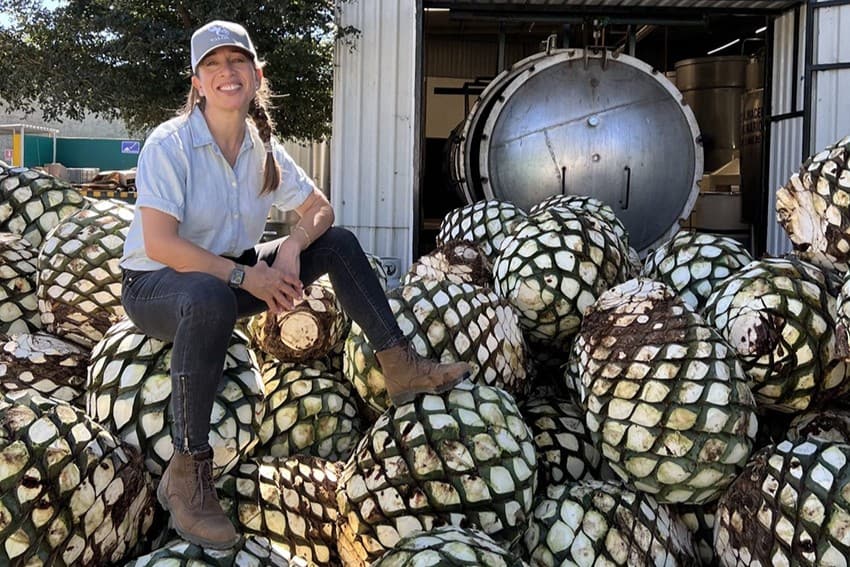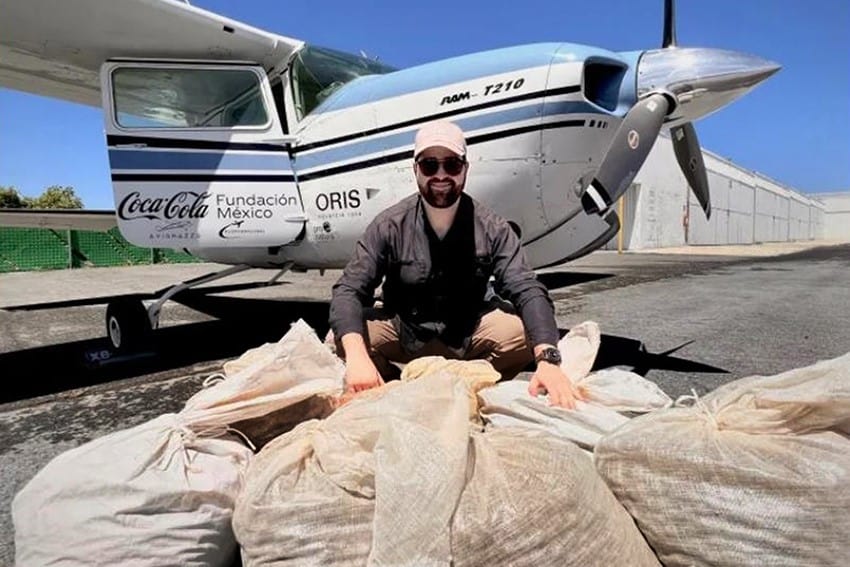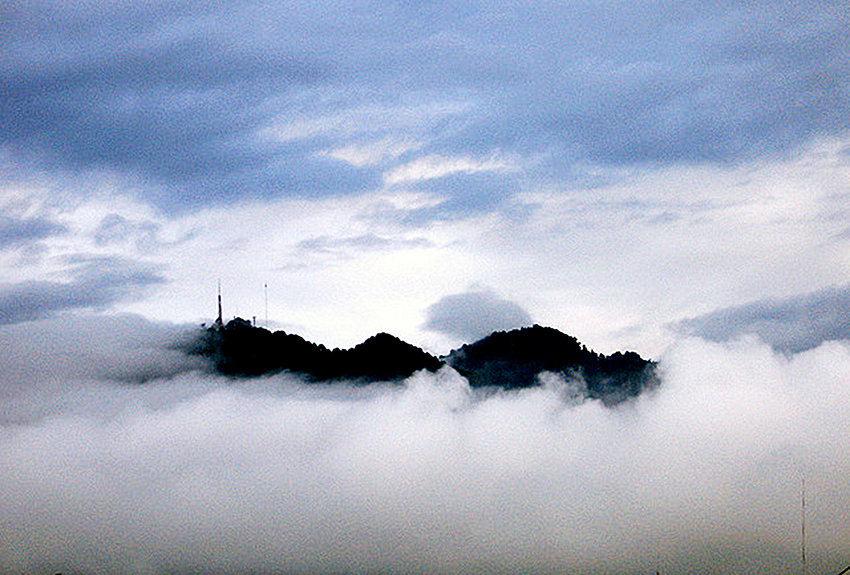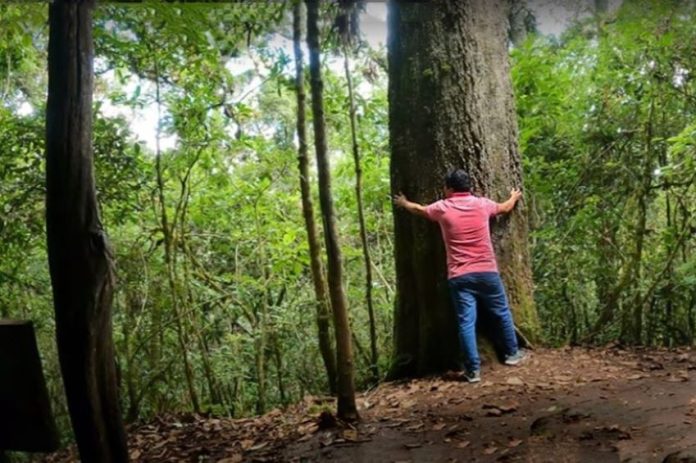The International Union for the Conservation of Nature is considered the largest and oldest ecological organization in the world. It is represented in Mexico by the Pronatura Group, which is composed of six regional chapters that cover all 32 of Mexico’s states.
Pronatura is involved in everything from practical projects like providing clean drinking water to marginalized communities to more esoteric goals such as ending poverty. Over the years, Pronatura has planted 79,655,609 trees in 31 states. It has installed water catchment systems on 599 roofs and created 749 backyard gardens.
It works towards the conservation of monarch butterflies, restores mangroves, monitors bird migrations, builds water treatment facilities, sets up community plant nurseries, and works to measure, reduce, and compensate for the carbon footprints of companies and events.
Pronatura is involved in a great many projects in this country, but few people know much about it. To shine some light on Mexico’s number one conservation NGO, I spoke to Pronatura’s Director, Kathy Gregoire.
“Our organization,” she replied, “was founded in 1981 by a group of birdwatchers, scientists, and businessmen who got together to discuss the critical situation of birds in Mexico. The result was the founding of Pronatura.”
The organization’s six regional chapters, Gregoire told me, are involved in projects both large and small.
Tequila and water

To begin with a small project, we go to the tiny community of San Pedro Landeros, not far from Tequila, Jalisco.
The tequila industry, Gregoire says, uses from 10 to 15 liters of water for every liter of finished spirit they produce. When Pronatura was approached by a tequila brand trying to reduce this use of water, Pronatura signed on board.
The brand is Valor Tequila and its owner is Christiane Maertens of Los Angeles.
“I spent years in the USA,” Maertens told me, “advising companies how to be more sustainable, how to be more responsible. Then, in 2021, someone told me, ‘Maybe it’s time for you to start your own product company so that you can showcase what it looks like to embed responsibility and to affect the supply chain from the very beginning.’”
Since she loves Mexico and has spent many years in the country, Maertens decided to start a tequila company.
Says Maertens: “We are meeting with members of Valor’s local community in San Pedro de los Landeros, and we discovered that one of the main problems they have to deal with is water. They only get it delivered two to three times a week. So we started working with the county of Tequila on plans, blueprints, and approvals and we’re building a water distribution system in San Pedro and helping people build cisterns on their properties.
Maertens is also encouraging tequila companies to put ten percent of their revenues back into the local communities.
“The tequila industry is a multi, multi, multi-billion dollar industry,” she says, “but the money’s not coming back to Mexico and we’re trying to showcase that it is possible to still make money, but helping everybody to prosper and live healthy, well-rounded lives.”
On a bigger scale, Pronatura has been working for 15 years to reduce the water footprint of leading soft drinks brands in the country, and one of the results is a replenishment initiative whereby, for every liter of water they use, the company is committed to returning a liter of water to the earth.
A million seed balls

Another example of a local project sponsored by Pronatura is Proyecto Siembra Extrema which took place this year in Tlaxco, Tlaxcala, a mountainous area badly affected by forest fires. Here, the townspeople created one million seed balls composed of clay, mud, and earthworm castings, each containing five pine seeds. Then, with the help of a Cessna 210 aircraft, the seed balls were dispersed over the affected area.
“Yes, we have both big and small projects,” Gregoire explained, “but what we say in Pronatura is: ‘When we’re comfortable, we’re uncomfortable.’ So we’re always looking at how to innovate. For example, next year we will be focusing on how to use AI to be more efficient in the implementation of our projects.”
“I think working hands-on is probably one of our strongest points,” added Gregoire. “I guess we’re probably the only Mexican NGO with boots on the ground.”
Huitepec Cloud Forest

Huitepec is one of the tallest volcanoes in Chiapas and towers over the city of San Cristóbal de las Casas. In 1986 Pronatura A.C. acquired 135 hectares of this cloud forest and turned it into a protected area dedicated to environmental education.
Huitepec is home to a great diversity of flora and fauna, from shrews and salamanders to flying squirrels, as well as endemic species of birds, such as the blue-throated motmot and the bearded screech-owl. In addition, it has a spectacular variety of wild orchids.
Huitepec is, in fact, so special that Maya legends about it persist even today:
“In the highest mountains of the valley,” say the ancients, “where the vegetation is dense and closed, lives the Lord of the Earth, master of the wind, water, lightning, and rain. There he lives surrounded by his daughters, who pass the day weaving cotton. Sometimes the cotton fibers escape them, carried away by the wind, and these are what form the clouds we see shrouding the mountain top.”
For more information on Huitepec, call 967 678 5000.
Hike through Moxviquil Orchid Garden
Pronatura Sur runs a project at the edge of San Cristóbal, called the Moxviquil Ecological Reserve and Orchid Garden. Covering more than 80 hectares, this mountain is of critical importance for capturing water and maintaining the city’s system of natural springs.
Here, you can find over half of Mexico’s 1250 species of orchids. Visitors can spot many of them while hiking through an oak forest along a 1700-meter-long trail, either on their own or accompanied by a specialized local guide.
The trail is open to the public from 9 am to 3 pm, Tuesday to Sunday. To reserve a guide, call 967 678 0542.
Pronatura, it seems, is working in every corner of Mexico. To find out what they’re doing in your corner, have a look at their webpage.
The writer has lived near Guadalajara, Jalisco, for more than 30 years and is the author of A Guide to West Mexico’s Guachimontones and Surrounding Area and co-author of Outdoors in Western Mexico. More of his writing can be found on his website.
